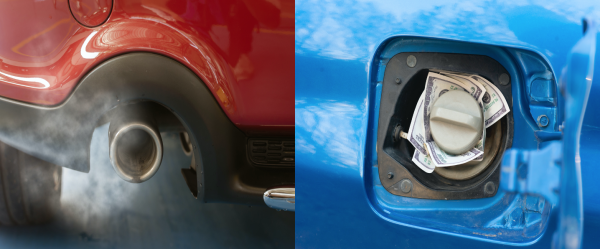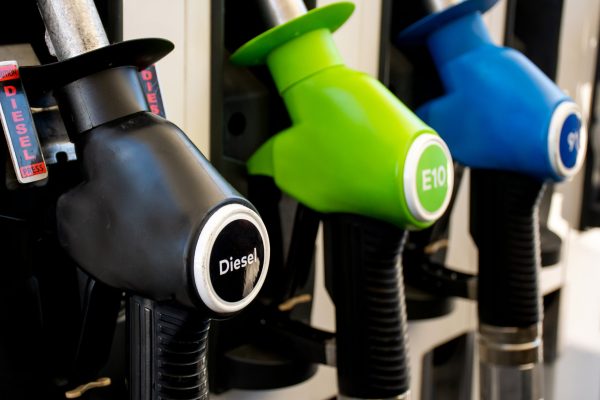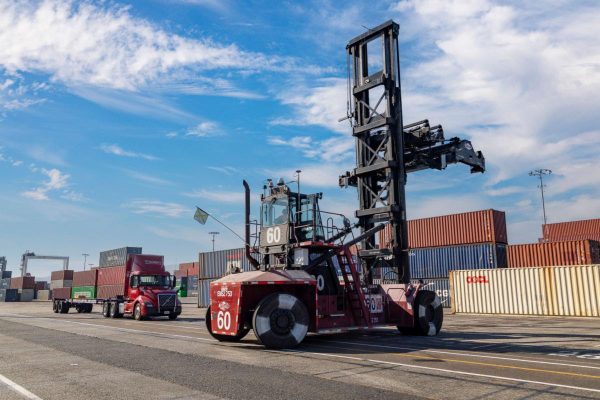House Republicans called for California air-quality regulators to postpone an upcoming vote on more stringent emissions standards that could significantly increase fuel prices, U.S. Rep. Michelle Steel announced Friday.
Steel, whose district is in northeastern Orange County, and Rep. Rand David Valadao, R-Visalia, co-wrote a letter signed by all House Republicans from California asking the Air Resources Board to delay a Nov. 8 vote on changes to the state’s Low Carbon Fuel Standard.
“Once the proposed amendments are implemented in 2024, they are projected to potentially increase the price of gasoline by an average of $0.37 per gallon, potentially increase the price of diesel by an average of $0.47 per gallon, and fossil jet fuel $0.35 per gallon based on the average change in estimated annual LCFS credit price and annual deficits … through 2030,” according to a California Air Resources Board analysis released in September 2023.
The same analysis, which the reps’ letter references, also provided a table showing 2025 pump prices could rise by $0.47 per gallon for gasoline, $0.59 for diesel and $0.44 for jet fuel.
The congressional members’ letter to the board also included an estimate from the state’s Independent Emissions Market Advisory Committee that the “current policy trajectory could singlehandedly raise gas prices by 85 cents by 2030.”
The lawmakers urged board members to immediately assess costs to consumers before making policy changes that will raise gas prices, adding that high gas prices “disproportionately affect working class Californians, who’ve already weathered significant cost of living increases in recent years.”
Co-signers of the letter were Reps. Ken Calvert, John Duarte, Vince Fong, Mike Garcia, Darrell Issa, Kevin Kiley, Young Kim, Doug LaMalfa, Tom McClintock and Jay Obernolte.
“Governor Newsom’s bureaucracy in Sacramento continues to make life unaffordable for Californians without considering input from affected citizens. State agencies should not be enacting new regulations raising our cost of living by dramatically increasing already-high gas prices,” Steel said in a statement. “CARB must delay their November 8 vote and study the impact their regulations will have on all Californians.”
The letter, which is addressed to CARB Board Chairman Liane Randolph, noted that “(the board’s) new and opaque approach comes as Californians continue to weather gas prices $1.50 above national averages, as well as a July hike in the gas excise tax to 59.6 cents per gallon. Allowing these amendments to move forward will result in an added economic burden on Californians when they are already struggling with elevated energy, food, and housing costs.”
CARB spokesman Dave Clegern said the board’s Nov. 8 vote on the Low Carbon Fuel Standard “is part of a statutory timeline to complete the regulation by the end of this year.
“And just to be clear, CARB does not predict or set fuel prices,” Clegern said in a statement Monday to the Anaheim Press. “No state agency sets fuel prices or can vote on a price increase, that is entirely a business decision made by oil companies.”
Clegern said the 2023 analysis cited in the reps’ letter “is assembled before an actual regulation is developed (and) the numbers in it are essentially hypothetical responses, based on possible policy scenarios. The model involved does not calculate compliance or pump prices. We have some information on what is required for producers to comply with the regulation, but have no way of knowing what future changes or shocks will affect the petroleum market.”
The California Transportation Supply, or CATS model aims “to help estimate fuel supply that may be delivered to California under different policy scenarios,” Clegern said. “The focus of the model is how the fuel mix may change under different policy scenarios. The model was not designed to predict the future, nor was it designed to simulate the complexities of the broader California transportation fuel market, which includes a wide diversity of transportation fuel producers, marketers, and retailers. …
“To CARB’s knowledge, no model currently available can accurately predict future credit prices for the LCFS, future transportation fuel prices, or passthrough cost for retail gasoline or diesel costs.”
Clegern said the proposed fuel regulations bring significant environmental benefits, including by 2046 reductions in greenhouse gas of 558 million metric tons, more than 25,000 tons of nitrogen oxides and over 4,200 tons of fine particulate matter known as PM 2.5.
The proposed LCFS update “will also save $200 million in healthcare costs statewide by 2046” and boosts support for light- and heavy-duty infrastructure through the mid-2030s, Clegern said.
He added that the proposed fuel standards update also supports alternatives to fossil fuel during the state’s transition to zero-emission vehicles, increases support for local transit agencies and the development of zero-emissions technology and provides “hundreds of millions of dollars for utilities to invest in equity projects.”
The House members’ full letter is available online.
The Nov. 7-8 meeting is at the board’s Southern California Headquarters Haagen-Smit Auditorium, 4001 Iowa Ave. in Riverside. Additional information on the meeting is at ww2.arb.ca.gov/ma110824.
Updated Oct. 29, 2024, 10:38 a.m.







